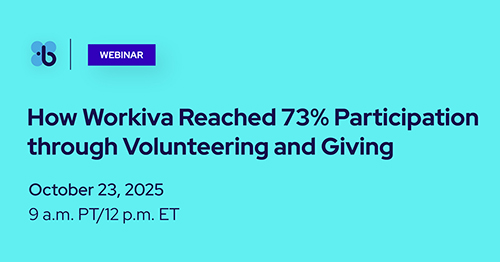In a world where transparency is increasingly demanded, funders and nonprofits need to find ways to more efficiently report on verified outcomes without continually increasing reporting needs.
Watch an engaging conversation with global impact measurement pioneer Jason Saul and Australian philanthropic leader Dr Liz Branigan. Together, they explore how standardized social impact outcomes are enabling smarter, more effective partnerships between funders and non-profits.
This session is essential for Corporate and other philanthropic funders who are interested in accurately assessing the impact of their partnerships.
You’ll discover how to:
- Use standardized outcomes to verify the impact of your funding without adding administrative burden
Apply real-world impact measurement insights from global and Australian contexts
Take practical steps to begin or evolve your impact measurement strategy
Key learnings
- The Importance of Standardization: Jason Saul, CEO and Founder of Mission Measurement & Impact Genome Project, stressed the need for standardizing social outcomes and impact verification across diverse organizations. He emphasized the development of a shared taxonomy from thousands of grants and programs to streamline impact measurement, enabling bench-marking and cost analysis per outcome.
- Evaluation Challenges and Reducing Complexity: The panel discussed the complexities and high costs of traditional evaluation methods in the philanthropic sector, advocating for standardized, simpler evaluation processes. Liz Branigan, Director, Knowledge & Practice at Philanthropy Australia, underscored how standardizing metrics for evaluations could lead to better communication and understanding outcomes among stakeholders.
- Significance of Meaningful Metrics: The discussion delved into the problem of ineffective use of collected data and underscored the need to focus on meaningful metrics like cost per outcome. The conversation also explored the potential oversimplification of standardized frameworks, highlighting the importance of integrating qualitative data and local context in the evaluation processes.
- Collaboration and Democratization of Impact Measurement Tools: Chris Venter, Principal Account Executive at Benevity, and Jason Saul underlined the need for cross-functional collaboration between nonprofits and funders. They accentuated the importance of democratizing impact-measurement tools to adequately recognize the contributions of nonprofit organizations.
- The Role of Storytelling and Outcome Markets: Jason Saul elaborates on the concept of 'outcome markets' where funders prioritize specific outcomes and nonprofits compete to deliver the best at minimum cost. Additionally, the speakers highlighted the role of storytelling in illustrating outcomes, ensuring a balance between metrics and narratives. Chris Venter and Jason Saul emphasized the necessity to understand the 'cost per outcome,' fostering increased donor engagement through education.











